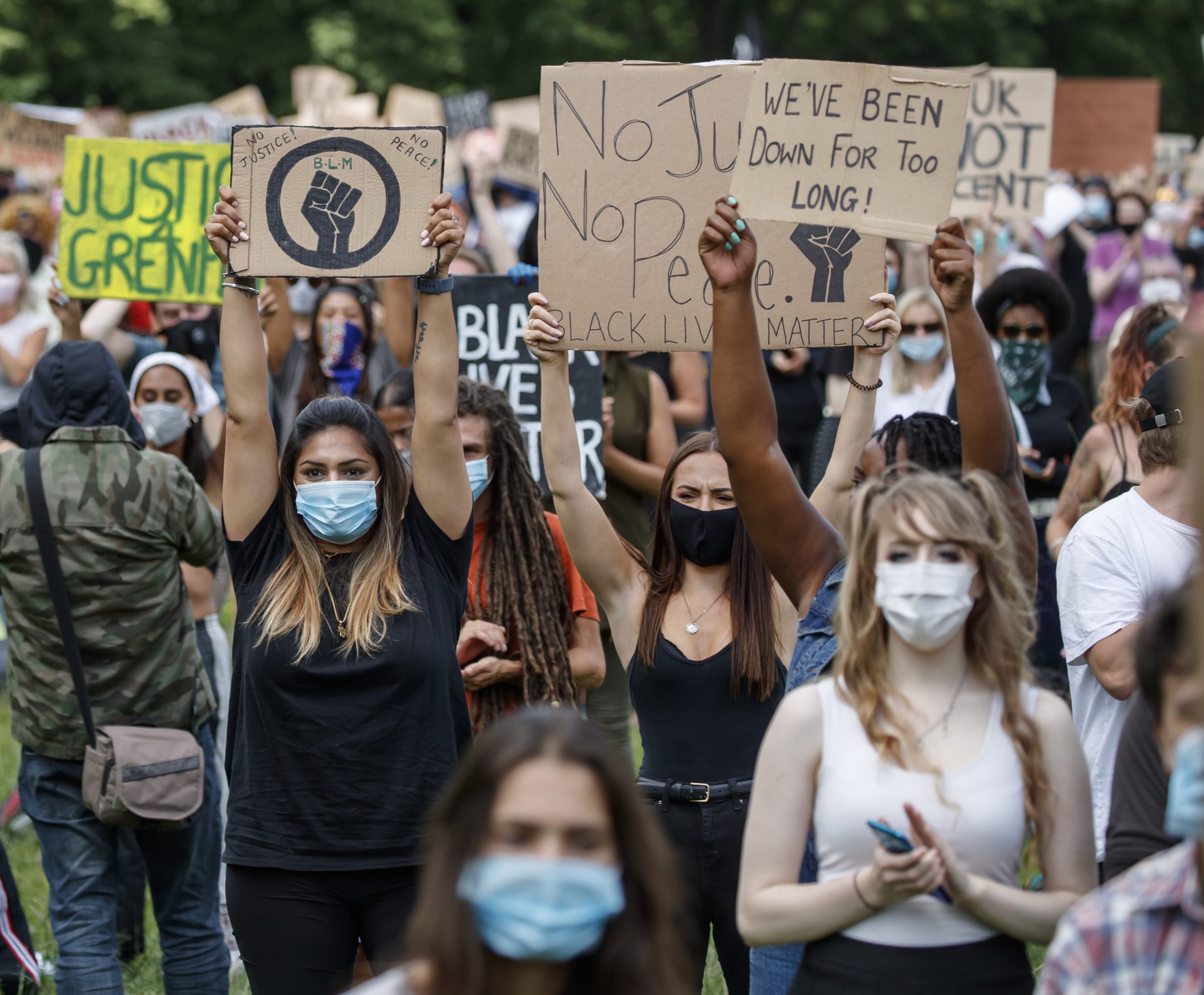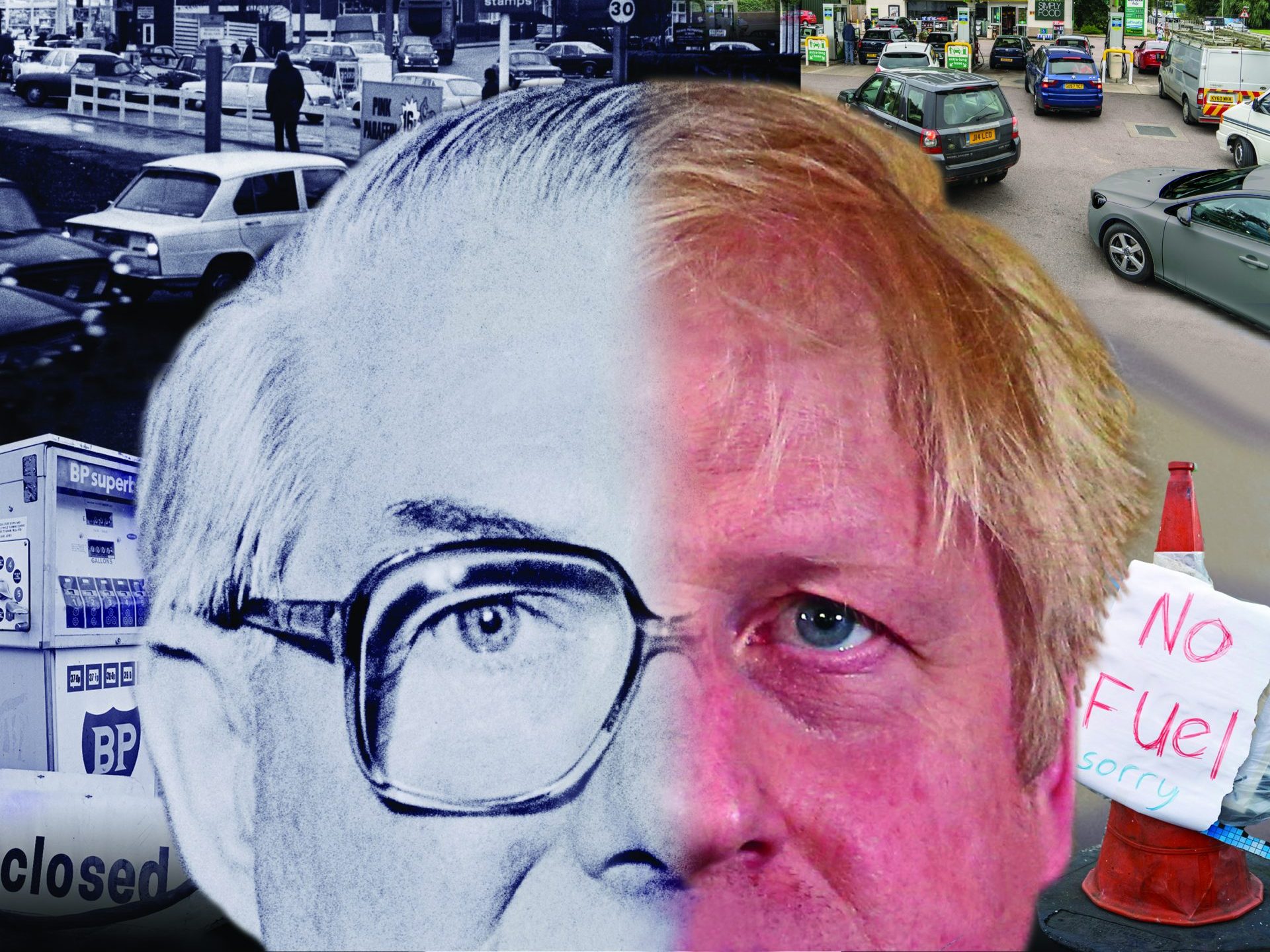Last week a customer killed a young petrol station cashier in the German town of Idar-Oberstein.
According to reports, the suspect had entered the station in the early evening and picked up a six-pack of beer. The cashier twice asked him to put on a mask if he wanted to be served. This was the Covid rule.
The cashier was just doing his job. The man refused, despite having one in his back pocket. He left empty-handed but returned later wearing a mask under his chin, pulled out a revolver and shot the 20-year-old in the head at close range.
He then fled, only to turn himself in the next day. Police reported that he had told them he acted ‘out of anger’ and that he rejected all the measures taken against the coronavirus.
Anger makes people behave irrationally. It’s so often a dangerous negative emotion and often linked with violence. Shouldn’t we then just try to get rid of it?
But what about the anger of the French government at Australia’s recent decision to drop a deal with France to build submarines in favour of the US?
Is that inappropriate? What about the anger many of us still feel at Brexit and the unfolding consequences? Should we abandon that? What of the widespread rage at the Tory decision to cut universal credit by £20, a decision excoriated by Gordon Brown, amongst others as likely to lead to a significant increase in child poverty? Is anger the wrong response here?
The Roman philosopher Lucius Annaeus Seneca (born in Cordoba in 4 BCE) certainly thought so. He described anger as temporary madness. Unlike Aristotle, who argued that it could be a spur to virtue, Seneca thought anger was always bad.
When people are in a state of rage a red mist descends and they lose self-control. Cases like the petrol-station killer support that. If he hadn’t been so enraged, perhaps that young cashier would be alive today.
Seneca was heavily influenced by Stoicism, a philosophy that holds that we should control our emotions, not be their victims.
It’s not that a Stoic wouldn’t have any emotions at all – they are sometimes misleadingly portrayed as Spock-like in their coolness.
Rather, because they are human (not Vulcans) Stoics will very likely feel what Seneca called ‘first movements’, physiological responses to a triggering situation.
These automatic bodily reactions precede the judgments we make that turn feelings into full blown emotions. Like the rest of us, Stoics will in some situations feel the beginnings of an emotion like anger, but they will try to curb it.
The contemporary philosopher Martha Nussbaum, influenced by Seneca, has urged us to get beyond anger in both private and public life. She points out that a desire for payback is at anger’s core. Anger is a sense of being wronged combined with a strong desire to retaliate. If you don’t feel that wish to get your own back, what you are experiencing probably isn’t anger.
Nussbaum argues that although getting angry is a deeply human trait, it is “fatally flawed as a way of making sense of the world” and “a stupid way to run one’s life”. She uses the example of Nelson Mandela, who, despite his 27 years of imprisonment, managed to avoid the anger trap once released, focussing instead on truth and reconciliation, and on forgiveness rather than revenge.
Massimo Pigliucci, author of How To Be A Stoic, has taken a similar line too.
Not all philosophers are persuaded by this. Myisha Cherry in her new book The Case for Rage argues very plausibly that anger is an appropriate, useful, and powerful reaction to racism, and often more effective than cooler responses might be.
She rejects the assumption that anger always involves a desire for retaliation, and also the belief that all forms of protest should be anger-free.
There are different kinds of anger – some bad and some good. The right kind of angry reaction can be valuable, and even a necessary part of the pursuit of justice. Anger can express defiance. Rage can be channelled into positive action and can fuel political change. Expressing anger as part of the Black Lives Matter movement is a way of showing compassion for victims of racist attacks and of signalling the moral worth of all black lives.
Protestors’ anger shows how much they treasure justice, and how much they despise its absence. When bad people get angry we are in trouble. Of course.
But when good people are angry about things that matter there is hope for change.



